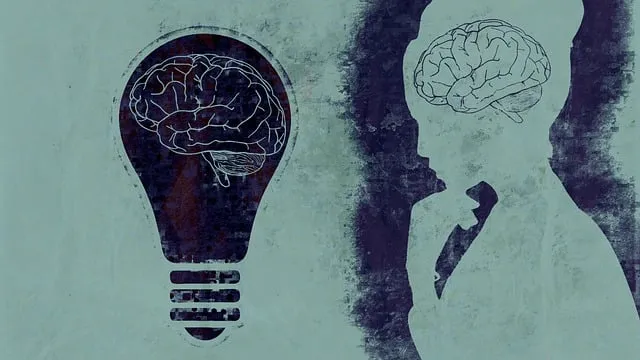Crisis Intervention Teams (CITs) at Kaiser Permanente Mental Health Lakewood are integral to effective mental healthcare. These teams, comprising trained professionals, first responders, and community support staff, utilize evidence-based techniques for emotional well-being promotion to assess and de-escalate crises. The program's holistic training includes mental wellness coaching and intense cultural sensitivity education, empowering CIT members to handle diverse mental health situations with confidence and compassion. By focusing on risk management, stigma reduction, and tailored interventions based on cultural backgrounds, Kaiser Permanente Mental Health Lakewood's CIT training has significantly improved crisis response, fostering a safer and more supportive work environment for staff and the community.
“In today’s complex healthcare landscape, effective crisis intervention plays a pivotal role in delivering quality mental health care. This article explores the critical function of Crisis Intervention Teams (CITS) and highlights the innovative training programs offered by Kaiser Permanente Lakewood. We delve into the unique features that set their approach apart, including hands-on simulations and peer support strategies. Additionally, we examine essential components for successful CIT training, drawing from real-world success stories at Kaiser Permanente Lakewood to showcase the profound impact of well-trained teams on patient outcomes.”
- Understanding Crisis Intervention Teams: A Key Component in Mental Health Care
- Kaiser Permanente Lakewood's Approach to Training: Unique Features and Benefits
- Essential Components of an Effective Crisis Intervention Team Training Program
- Real-World Impact: Success Stories from Kaiser Permanente Lakewood's Trained Teams
Understanding Crisis Intervention Teams: A Key Component in Mental Health Care

Crisis Intervention Teams (CITs) are a vital component of mental health care systems, particularly in areas like the Kaiser Permanente mental health Lakewood region. These specialized teams play a crucial role in responding to individuals experiencing severe emotional crises or psychiatric emergencies. CIT members are typically comprised of healthcare professionals, first responders, and other community support staff who have undergone comprehensive training in crisis intervention techniques.
The Mental Health Education Programs Design often centers around empowering these teams to assess and de-escalate high-risk situations effectively. Through role-playing scenarios and evidence-based practices, CIT members learn Emotional Well-being Promotion Techniques to help individuals navigate their crises and connect them with appropriate support services. By fostering a collaborative approach, these programs ensure that communities have the tools necessary to address mental health challenges proactively, ultimately enhancing overall Mental Health Awareness and improving outcomes for those in need.
Kaiser Permanente Lakewood's Approach to Training: Unique Features and Benefits

Kaiser Permanente Lakewood takes a holistic approach to crisis intervention team (CIT) training, focusing on both technical skills and interpersonal dynamics. Their program emphasizes the importance of mental wellness coaching as a key component in effective CIT training. By equipping team members with tools to support not just immediate crisis resolution but also long-term mental health development, Kaiser Permanente Lakewood ensures that their CITs are prepared to navigate complex patient needs.
Unique to their method is an intense focus on cultural sensitivity in mental healthcare practice. This involves thorough training on the impact of cultural background, identity, and experiences on mental illness expression and treatment preferences. Such an approach not only enhances the team’s ability to provide culturally competent care but also contributes to mental illness stigma reduction efforts by fostering empathy and understanding among CIT members. Through interactive workshops, real-life scenario simulations, and ongoing debriefing sessions, Kaiser Permanente Lakewood’s training program empowers teams to confidently and compassionately address mental health crises in a diverse range of community settings.
Essential Components of an Effective Crisis Intervention Team Training Program

An effective Crisis Intervention Team (CIT) training program is a multifaceted initiative designed to equip healthcare professionals with the skills and knowledge needed to manage mental health crises effectively. At Kaiser Permanente Mental Health Lakewood, we recognize that CIT training should encompass several crucial components to ensure its impact.
Firstly, these programs must prioritize Risk Management Planning for Mental Health Professionals. This involves equipping teams with strategies to assess and mitigate risks associated with managing individuals in crisis, fostering a safe environment for both patients and providers. Secondly, addressing Mental Illness Stigma Reduction Efforts is paramount. Training should challenge stereotypes and promote understanding, creating an inclusive atmosphere where individuals feel supported rather than judged during crises. Moreover, integrating Cultural Sensitivity in Mental Healthcare Practice ensures that teams are prepared to navigate diverse cultural backgrounds, tailoring interventions to meet the unique needs of each individual. Through comprehensive curriculum design, these components collectively contribute to the success of CIT training, fostering competent and compassionate crisis responders.
Real-World Impact: Success Stories from Kaiser Permanente Lakewood's Trained Teams

At Kaiser Permanente Lakewood, crisis intervention team training has had a profound real-world impact. The program equips employees with the skills to recognize and respond effectively during mental health crises, fostering a safer and more supportive work environment. Through role-playing scenarios and practical communication strategies, teams learn to de-escalate situations, boost confidence in handling difficult conversations, and provide immediate assistance.
Success stories abound, highlighting the positive outcomes of these trained teams. Employees have reported improved ability to manage stressful situations, leading to better patient care and staff satisfaction. The training has also encouraged open dialogues about mental health, reducing stigma and promoting a culture of support within the organization. These initiatives align with broader stress reduction methods and contribute to the overall well-being of both employees and the community at large.
Crisis intervention team (CIT) training programs, as exemplified by Kaiser Permanente Lakewood’s innovative approach, play a pivotal role in enhancing mental healthcare. By equipping professionals with the necessary skills and knowledge, these programs empower them to navigate and de-escalate crisis situations effectively. The success stories from Kaiser Permanente Lakewood serve as a testament to the positive impact of comprehensive CIT training, ultimately fostering safer and more supportive environments for individuals facing mental health challenges. This tailored training is a game-changer in the field of mental healthcare, ensuring that folks receive the help they need in a timely and compassionate manner.






